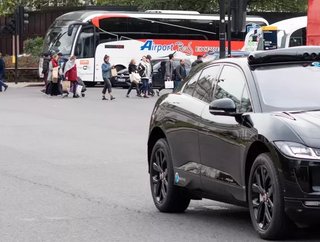Wayve announce $200mn in funding with backing from Microsoft

Wayve, a London-based start-up, is reimagining autonomous mobility with its use of embodied intelligence. Today, the company has announced its $200 million Series B round which it will use to accelerate the development of AV2.0, the next wave of autonomous vehicles.
With backing from a prominent group of global financial and strategic investors, this enhances Wayve’s ability to scale and deploy next-generation autonomous technology across the globe.
The round was led by a long-time supporter, Eclipse Ventures as well as additional support from new investors and technology companies, Virgin and Microsoft.
Alex Kendall, Co-founder and CEO, Wayve said: “We were the first team to develop the scientific breakthroughs in deep learning to build autonomous driving technology that can easily scale to new markets using a data-learned approach.”
“Today, we have all of the pieces in place to take what we have pioneered and drive AV2.0 forward. We have brought together world-class strategic partners in transportation, grocery delivery and compute, along with the best capital resources to scale our core autonomy platform, trial products with our commercial fleet partners, and build the infrastructure to scale AV2.0 globally,” he added.
This round of funding brings the company’s total raised to $258 million since its founding. It also reinforces Wayve’s position as a leader in autonomous driving as it pioneers an artificial intelligence (AI) led approach to autonomous vehicles (AVs) on a global scale.
Building a scalable driving intelligence with Wayve
Designed to be the most adaptable system for fleet operators, Wayve’s AV2.0 technology combines the advantages of a lean, camera-first sensing suite with the embodied intelligence of an end-to-end deep learning system.
The deep learning system continually learns from petabyte-scale driving data provided by Wayve's partner fleets, including Ocado Group, Asda, and DPD.
Seth Winterroth, Partner, Eclipse Ventures said: “As the industry struggles to solve self-driving with traditional robotics, it is becoming increasingly clear that AV2.0 is the right pathway to build a scalable driving intelligence that can help commercial fleet operators deploy autonomy faster.”
“Wayve is breaking new ground by building AVs that can adapt to driving in new cities, previously unseen in training. As the leaders in this field, they have assembled an exceptional team of machine learning experts and AV veterans to drive AV2.0 to reality,” he continued.
Utilising machine learning technology, Wayve is building a scalable AV platform. This platform will be able to quickly and safely adapt its driving intelligence to new cities, different use-cases and vehicle types.
In doing so, the technology unlocks the potential to scale commercial deployments to other cities more quickly than the conventional AV approach.
A typical approach tends to rely on an expensive and complex array of sensors and is operationally limited by HD maps and rules-based control strategies.
Wayve: unlocking the power of Microsoft Azure
On top of driving the development of its AV2.0 technology, the funding will also help the Wayve team grow and develop a Level 4+ AV prototype for passenger delivery vans.
The company will also scale its deployments on partner fleets to commence last-mile delivery pilots and develop the data infrastructure to improve its core autonomy platform at fleet scale.
As a result, the company will improve the accessibility of AV technology, allowing more businesses and individuals to benefit from safer, sustainable and more reliable forms of transportation.
Microsoft, which is joining as an investor, also support the company with Azure, its cloud computing platform.
By using Azure, Wayve can scale its machine learning platform. Azure is providing the compute and storage capabilities required to run autonomous driving development and testing workloads. It also conducts machine learning experimentation to improve autonomy performance.







